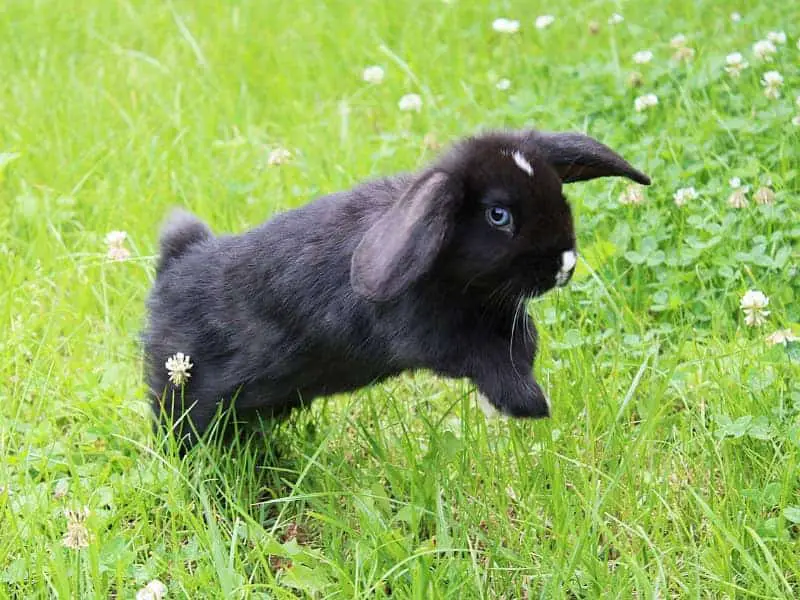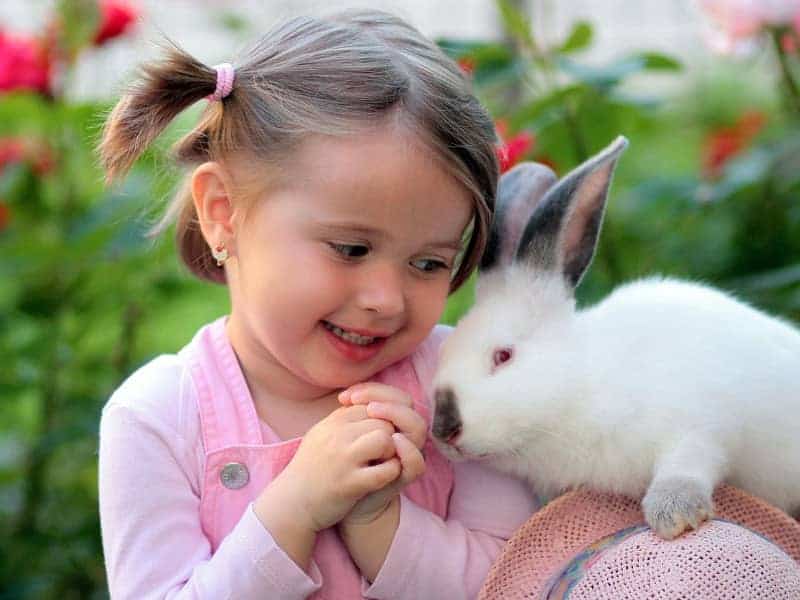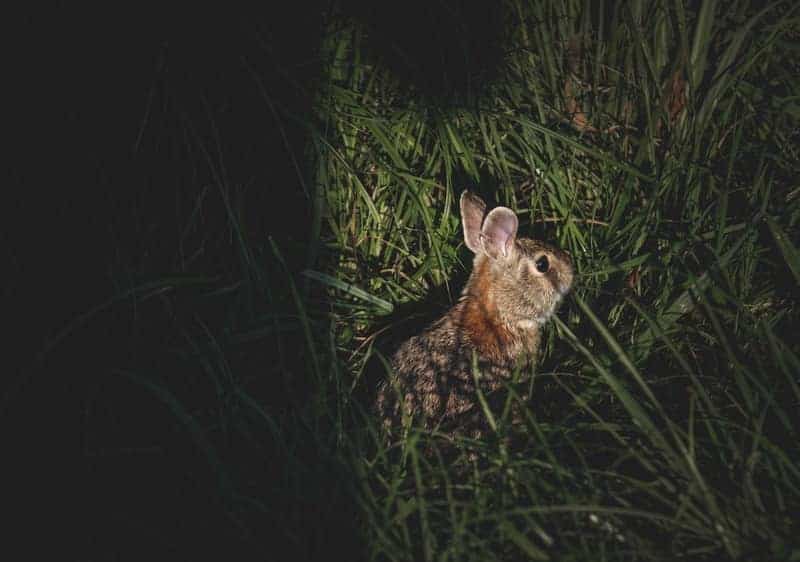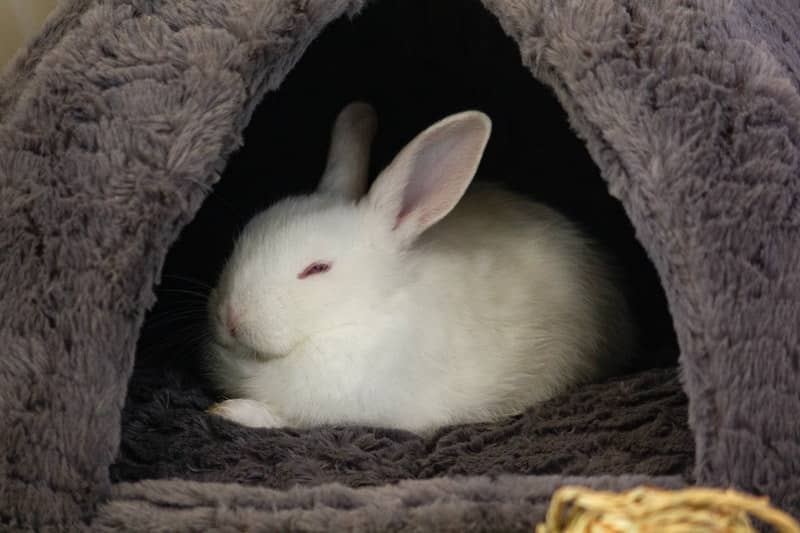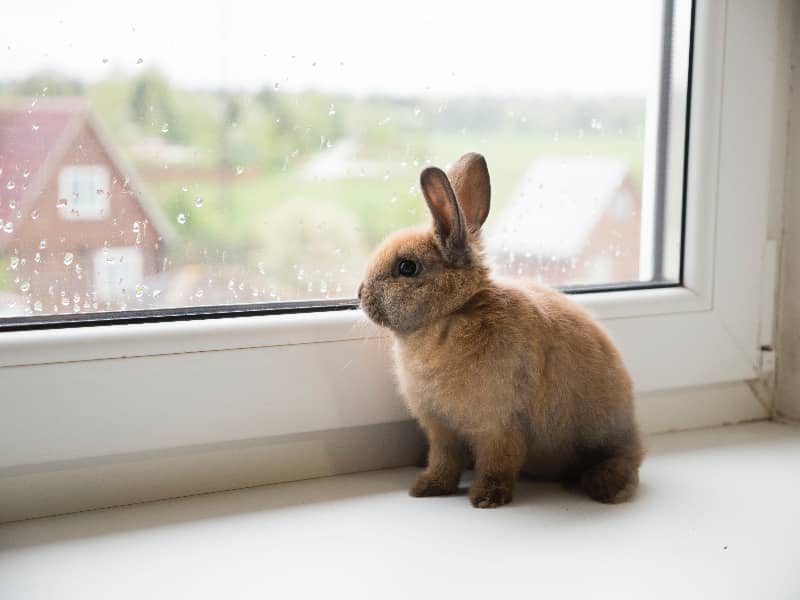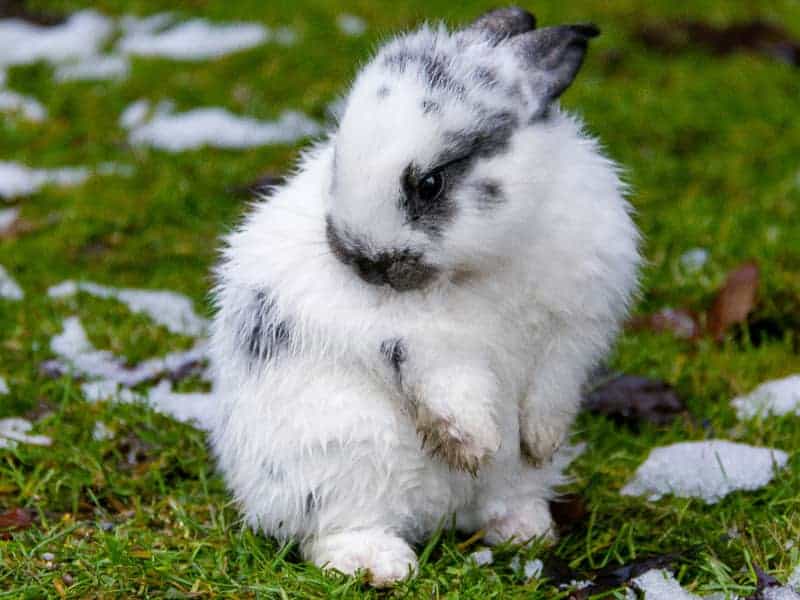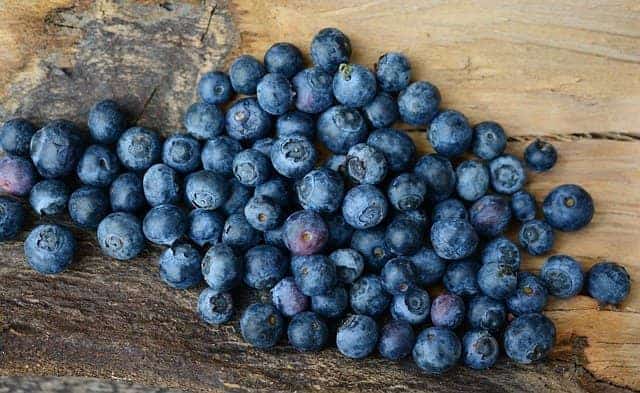
Are rabbits allowed to eat blueberries?
Hello dear readers, are you an avid pet owner and want to make sure that your little furry friend, your rabbit, gets the most out of his diet? Then you've come to the right place! Today we're going to address a very specific, but incredibly important question: Are rabbits allowed to eat blueberries?
- Are rabbits allowed to eat blueberries?
- Rabbits and their diet: a brief overview
- Blueberries: A sweet treat or a danger to your rabbit?
- Dwarf rabbits and blueberries: A special relationship?
- Blueberries in the rabbit diet: Dos and Don'ts
- The science behind rabbits and blueberries
- Blueberries and other berries in rabbit diet
- Spice up the menu of your rabbit
- The sweet conclusion: Are rabbits allowed to eat blueberries?
Rabbits and their diet: a brief overview
Before we dive into the sweet, juicy and rich topic of blueberries, let's first look at the diet of rabbits in general. Rabbits are known to be herbivores, which means that their diet consists exclusively of plant matter.
They feed mainly on hay, vegetables and fruit, with hay making up the lion's share of their daily food intake. It provides the necessary fiber, which ensures healthy digestion and at the same time the Rabbit teeth in check.
But what about fruits, especially blueberries? Are they safe for your little friend?
Blueberries: A sweet treat or a danger to your rabbit?
Blueberries are packed with antioxidants, vitamins and minerals, and have a sweet taste that is irresistible to most of us. But what does that mean for rabbits? Should you offer your furry friend a handful of these blue wonders?
The short answer is yes, but in moderation.
The health benefits of blueberries
Blueberries are a superfood for humans, but they also provide some health benefits for rabbits. They are rich in vitamin C, which is important for overall health. They also contain antioxidants that help neutralize free radicals in the body and thus strengthen the immune system.
The risks of blueberries for rabbits
Despite the many benefits, it is important to note that blueberries, like most fruits, have a high sugar content. Too much sugar can be problematic for rabbits, leading to health issues such as obesity, indigestion and even dental problems. Therefore, blueberries - and fruits in general - should only be given in moderation and as an occasional treat.
Dwarf rabbits and blueberries: A special relationship?
Can safely enjoy blueberries? That's a fair question! The nutritional needs of dwarf rabbits are not much different from their larger counterparts. However, due to their smaller size, portions should be adjusted accordingly.
The right portion size for dwarf rabbits
It is important to note that dwarf rabbits require less food than larger rabbit breeds due to their smaller size. This also applies to treats such as blueberries. You should adjust the portion size accordingly. One or two blueberries per week may already be a sufficient "sweet" treat for a dwarf rabbit.
Precautions when feeding blueberries
As with any new food you offer your rabbit, it is important to be careful and observe your rabbit's reaction to the blueberries. Start with a small amount and observe if there are any changes in your rabbit's behavior or bowel movements. If your rabbit has a negative reaction, you should eliminate blueberries from his diet and consult a veterinarian if necessary.
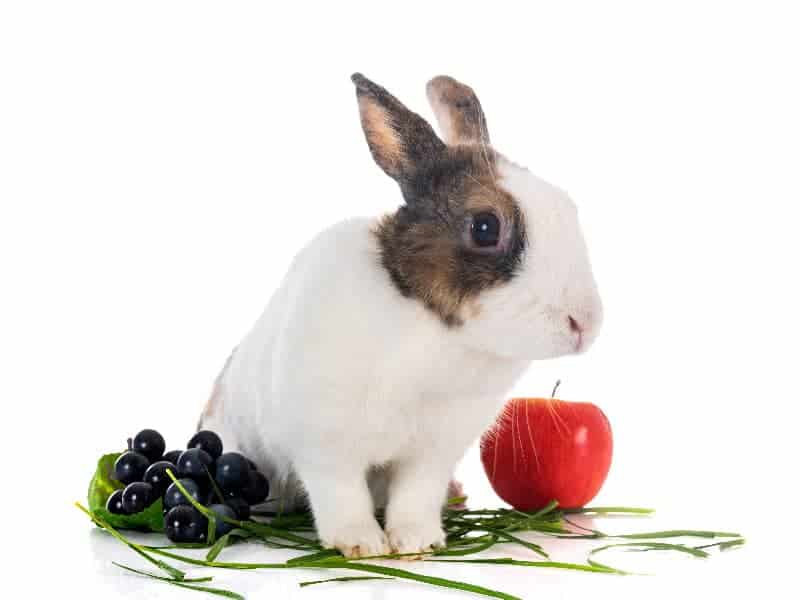
Blueberries in the rabbit diet: Dos and Don'ts
Now that we have discussed the benefits and possible risks of feeding blueberries to rabbits, let's establish some general guidelines.
The dos of feeding blueberries
- Moderation is the Key: As mentioned above, blueberries should be considered a treat and dosed accordingly. One to two berries per week for a medium sized rabbit and one berry per week for a dwarf rabbit is a good guide.
- Freshness is importantAlways make sure that the blueberries are fresh. Avoid giving your rabbit wilted or spoiled berries.
- Observe the reaction of your rabbitObserve how your rabbit reacts to the blueberries. Each rabbit is an individual and it is possible that your pet is more sensitive to certain foods than others.
The don'ts of feeding blueberries
- Avoid overfeedingFeeding too many blueberries can lead to health problems. Remember that the main component of your rabbit's diet should be hay.
- Avoid processed blueberriesDo not give your rabbit dried blueberries, blueberry jam or other blueberry flavored products. These often contain extra sugar or other additives that can be harmful to your rabbit.
- Do not replace the main diet with treats: Remember that treats like blueberries should not replace your rabbit's main diet. They should serve as an occasional reward.
The science behind rabbits and blueberries
You may be wondering why, despite the high sugar content in blueberries, rabbits are still allowed to eat these fruits in moderation. To understand, let's dive a little deeper into the science of rabbit nutrition.
The digestive tract of a rabbit
Rabbits have a specialized digestive tract designed for a high fiber, low sugar diet. Their gastrointestinal passage is long and complex and includes the caecum, a large organ where bacteria help ferment undigested fiber and break down the nutrients it contains.
The role of sugar in rabbit nutrition
Sugar is not bad per se in rabbit nutrition, but fulfills important functions. It provides readily available energy and is part of many fruits that rabbits would eat in the wild. The problem, however, is that excess sugar can lead to digestive problems and obesity. Therefore, it should only be consumed in moderation and as part of an overall balanced diet.
Blueberries and other berries in rabbit diet
Blueberries are not the only berries you can offer your rabbit. There are a variety of berries that rabbits can safely eat, each offering their own health benefits.
Raspberries and blackberries
Both raspberries and blackberries are safe options for rabbits. They contain many vitamins and minerals and are also rich in antioxidants. However, like blueberries, they should only be given in moderation.
Strawberries
Strawberries are another safe and tasty option for rabbits. They contain less sugar than some other fruits and can therefore be given in slightly larger quantities. However, make sure you only feed ripe strawberries and remove the green foliage as it can be harmful to rabbits.
Spice up the menu of your rabbit
In addition to blueberries and other berries, there are a variety of foods you can offer your rabbit to make his diet varied and exciting. These include various types of vegetables, such as carrots, broccoli and fennel, and even some herbs and grasses.
It is important that you always proceed carefully when introducing new foods and observe your rabbit's reaction. This way you can ensure that your furry friend gets a healthy and balanced diet that he also likes.
So overall, blueberries are a great way to add variety to your rabbit's diet while providing him with important nutrients. As long as you watch portion sizes and make sure blueberries are only a small part of your rabbit's overall diet, they can be a great addition to his food. Bon appetit, little friend!
The sweet conclusion: Are rabbits allowed to eat blueberries?
As with so many things in life, the key seems to be balance. Blueberries can be a healthy and delicious addition to your rabbit's diet, as long as they are given in moderation. So, the next time you treat yourself to a bowl of these sweet, juicy fruits, why not save a berry or two for your furry friend?
They're sure to appreciate it - and you can enjoy the good feeling that you've given them something that's not only delicious, but healthy too!
Author

-
Garden animal - A life with nature
Welcome to my animal blog! My name is Dirk and I am happy to take you on my journey through the fascinating world of animals and gardening.
Born 54 years ago, I have had an insatiable curiosity for the animal world around me since childhood. Although I have moved professionally in other industries, my true passion has always been animals and nature. It is remarkable how a small garden has become such an important part of my life.
Many of my fondest memories are associated with the animals that share our home. Whether it's the curious squirrels that scurry across the trees in the morning, the colorful variety of birds that visit our feeders, or the busy bees and butterflies that pollinate our flowers, every moment with them is invaluable to me.
This blog is my contribution to share my experiences, discoveries and insights with like-minded people. Here I will share stories of unforgettable encounters with animals, give tips on gardening and creating wildlife-friendly habitats, and take you on my journeys through nature.
Thank you so much for being here!
Cordial,
Dirk aka garden animal
Last posts
- 27. February 2024PetsVeganes Hundefutter – Grün und Gesund?
- 18. January 2024ChickensOregano für Hühner
- November 27, 2023HamsterDiurnal hamsters
- November 24, 2023HamsterHamster hammock

